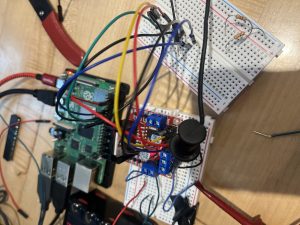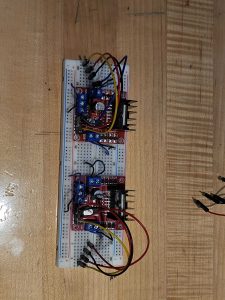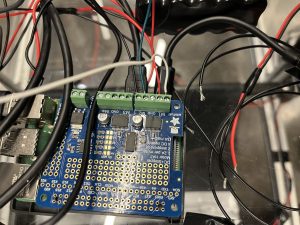This week, I have mostly spent my time trying to debug dc motors. On Monday’s interim demo, we found out that the robot cannot move when it is on the ground. Plus, some of the motors would not run at all. We thought the battery was an issue, but, later on after multiple debugging sessions, we concluded that the current going into raspberry pi hat controlling the dc motors was not handled well by the hat. As a result, we decided to switch from the pi hat to L298N motor driver.


It took us about two-three sessions to build the circuitry for all 4 dc motors using 2 L298N motor drivers for each two motors. Hirani and I met up earlier today to test out the motors, and finally all of them worked!
 –> A screenshot of a video that shows working motors.
–> A screenshot of a video that shows working motors.
However, one unforeseen problem we encountered was the wheels were not sturdy enough to hold the weights of the robot when we put the robot on the ground. When we ran the codes, the wheels would move very slightly but would not rotate. As a solution, we are considering replacing wheels to larger ones.
Meanwhile, I was able to successfully connect the stepper motors to the hat and write baseline codes for path finding algorithm (considering the case when robot is not able to detect anything–simply rotate 45 degrees).

We are currently behind the schedule, as we were not able to test the system due to the wheels not being able to move. To catch up our plan, we need to come up with a solution for the wheels in a timely manner by talking with professors so that we can head towards testing.
This week’s action item will be:
- Talk to professors during Monday meeting to discuss the issue with the wheels
- Complete the circuitry for two stepper motors using L298N motor drivers
- Modify motor control codes and integrate them with path finding algorithm codes
0 Comments